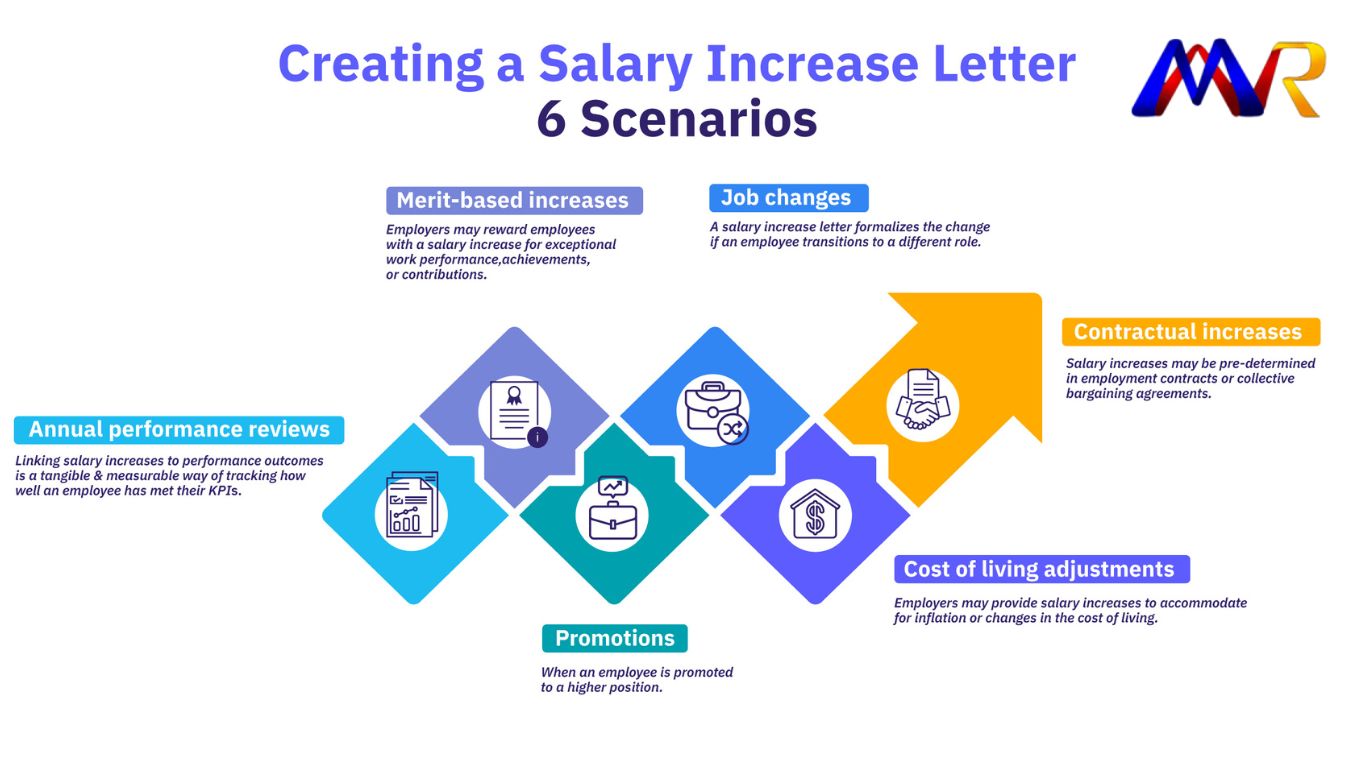When asking your manager for a salary hike, it’s essential to prepare and approach the conversation professionally. Asking your manager for a salary hike requires careful preparation, professionalism, and timing. Here’s a step-by-step guide on how to approach the conversation:
Here are some tips to help you navigate this discussion effectively salary hike:
- Research and preparation
- Highlighting Your Achievements
- Scheduling Meeting
- Effective Communication
- Being open to feedback
- Follow Up

Research and preparation
Research and preparation are crucial steps before requesting a salary increase. It is important to gather information on industry standards and salary ranges for your position to have a clear understanding of what is considered fair compensation. This research will not only help you determine if your current salary is competitive, but it will also provide you with valuable data to support your request for a raise.
By knowing the average salary for your role in your industry, you can make a strong case for why you deserve a higher salary hike. You can highlight your skills, experience, and accomplishments that justify a raise based on market trends and industry benchmarks. This information will also give you confidence when discussing your salary with your employer, as you will be armed with facts and figures to back up your request.
In addition to researching industry standards, it is also important to assess your own performance and contributions to the company. Reflect on your achievements, responsibilities, and any additional value you have brought to the organization since your last salary review. By demonstrating your worth and highlighting your impact on the company, you can further strengthen your case for a salary increase.
Overall, thorough research and preparation are essential for successfully negotiating a salary increase. By being well-informed and prepared, you can present a compelling argument for why you deserve a raise and increase your chances of achieving your desired salary.
Also Read:- How to Write a Mail to HR for Job Application
Highlighting Your Achievements
When highlighting your achievements, it is important to provide specific examples of how you have made a positive impact within the company. This could include projects you have successfully completed, goals you have exceeded, or any awards or recognition you have received. By showcasing your accomplishments, you are showing your employer the tangible value you bring to the organization.
In addition to listing your achievements, it is also important to highlight any contributions you have made to the company. This could include ideas you have implemented, processes you have improved, or ways in which you have helped your team or department succeed. By demonstrating your contributions, you are showing that you are a team player and are committed to the overall success of the organization.
Furthermore, it is beneficial to mention any additional responsibilities you have taken on since your last salary review. This could include new projects you have taken the lead on, roles you have assumed in the absence of a colleague, or any extra duties you have willingly taken on to help the team. By showcasing your willingness to go above and beyond your job description, you are demonstrating your dedication and commitment to the company.
Overall, highlighting your achievements, contributions, and additional responsibilities will help to showcase your value to the organization and make a strong case for why you deserve a salary increase.
Also Read:- How to Negotiate Salary with HR Confidently
Scheduling Meeting
When scheduling a meeting with your manager to discuss your salary hike, it is important to choose a time that works best for both of you. Consider their schedule and try to pick a time when they are not too busy or stressed.
This will ensure that they can give you their full attention and have a productive conversation about your salary hike. It is also a good idea to give them advance notice of the meeting so that they can prepare any necessary information or documents. By being considerate of your manager’s time and scheduling a meeting at a convenient time, you are more likely to have a successful discussion about your salary hike.
Also Read:- What Are Human Resources?
Effective Communication
When communicating with your employer about why you deserve a salary increase, it is important to be clear and concise in your reasoning. Start by highlighting your performance over the past year, pointing out specific achievements, projects, or goals that you have successfully met or exceeded. This will demonstrate to your employer that you have been a valuable asset to the company and have contributed positively to its success.
Next, emphasize your skills and qualifications that make you a valuable employee. This could include any specialized training or certifications you have obtained, as well as any unique abilities or strengths that set you apart from your colleagues. By showcasing your skills, you are showing your employer that you have the expertise and knowledge necessary to excel in your role.
Finally, focus on the value you bring to the company as a whole. This could include any cost-saving measures you have implemented, new clients you have brought in, or improvements you have made to processes or procedures. By demonstrating the tangible benefits you have provided to the company, you are making a strong case for why you deserve a salary hike.
Overall, effective communication is key when discussing a potential salary Hike with your employer. By clearly articulating your performance, skills, and the value you bring to the company, you are more likely to make a compelling argument for why you deserve to be compensated accordingly.
Also Read:- HR Roles and Responsibilities
Being open to feedback
Being open to feedback is crucial when discussing a salary hike with your manager. It’s important to approach the conversation with an open mind and be prepared to listen to their perspective. Your manager may have valuable insights into your performance and contributions to the company that you may not have considered.
During the discussion, be open to negotiating the terms of the salary hike. This could include discussing the amount of the raise, the timing of the increase, or any additional benefits that may be included. By being open to negotiation, you show that you are willing to work together to find a solution that works for both parties.
Remember that feedback is a two-way street, so be prepared to provide your own thoughts and insights during the discussion. This can help ensure that the conversation is productive and that both you and your manager are on the same page regarding your performance and potential for growth within the company.
Also Read:- How to Make Resume for Job Search
Follow Up
After the meeting, it is important to follow up with a thank-you email to your manager. In this email, you should summarize the key points that were discussed during the meeting. This not only shows professionalism, but it also reinforces your interest in the salary hike.
By taking the time to send a thoughtful and appreciative email, you are demonstrating your commitment to the conversation and the potential salary hike. Additionally, it allows you to express any additional thoughts or ideas that may have come to mind after the meeting. This follow-up email is a great way to keep the lines of communication open and to show your manager that you are proactive and engaged in the process.
Examples of How to Ask for a Salary Increase
Kindly note that your request may be unrelated to the content of the article. However, here are some examples of how to ask for a salary hike:
1. Highlight your achievements and contributions to the company.
2. Research salary ranges for your position in the industry.
3. Schedule a meeting with your manager to discuss your request.
4. Clearly articulate why you believe you deserve a salary hike.
5. Be prepared to negotiate and be open to feedback from your manager.
Also Read:- Why Human Resource is Important in an Organization
How to Ask for a Raise in an Email or Letter
When asking for a raise in an email or letter, it’s important to be professional and clear. Here are some tips on how to effectively ask for a raise:
1. Express Appreciation: Begin by expressing gratitude for the opportunity to work for the company.
2. State Your Purpose: Clearly mention that you are requesting a salary hike.
3. Highlight Achievements: Provide specific examples of your accomplishments, contributions, and any additional responsibilities you have taken on since your last salary review.
4. Research Industry Standards: Mention industry standards and salary ranges for your position to support your request.
5. Maintain a Polite Tone: Be polite and respectful in your communication, avoiding demanding language.
6. Request a Meeting: Ask for a meeting to discuss your request further.
By following these steps, you can improve the effectiveness of your request for a salary hike.
Remember, approaching the topic of a salary hike requires confidence, preparation, and professionalism. Good luck!





